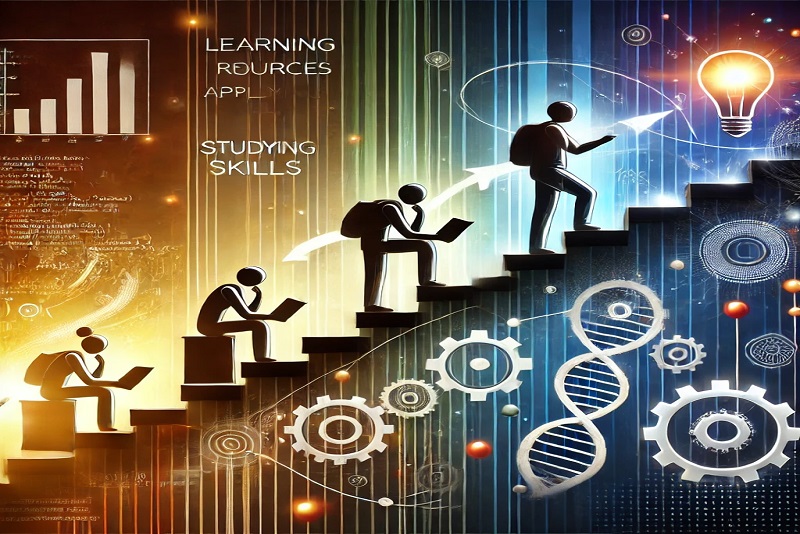The four stages to become a Master
Mastery in software engineering is a lifelong journey that combines technical expertise, adaptability, and self-awareness to tackle challenges and grow both as a professional and as a leader
[Lorenzo Conti] · 898 words · 5 min read · Sep 6, 2024
Software Engineering: a journey of growth
Embarking on a career in software engineering is both an exhilarating and demanding experience. The road to mastery isn’t just about technical skills — it’s about navigating a constantly changing landscape, solving unique problems, and growing as a professional.
Mastery in software engineering is often equated with technical brilliance and being seen as an expert in your field. But is that all there is to it? Let’s explore what mastery really means, the challenges along the way, and how deeper awareness — what I call “consciousness” — plays a crucial role.
Challenges on the path to mastery
Becoming a master software engineer is no small feat. The obstacles are as dynamic as the industry itself, and every engineer faces their own unique hurdles. Here are some of the most common challenges I’ve encountered (and heard about) from colleagues over the years:
- Rapid technological changes: If you’ve ever felt overwhelmed by the release of yet another framework, language, or tool, you’re not alone. The pace of change in our field demands constant learning, which can feel exhausting.
- Diverse skill set: Coding is just the tip of the iceberg. Debugging, system architecture, testing, design patterns — the list goes on. Mastering this breadth of skills takes time and patience.
- System complexity: Modern systems can be a web of interconnected microservices, dependencies, and APIs. Understanding how it all fits together can feel like solving a never-ending puzzle.
- Problem-solving and creativity: Some of the most satisfying moments in engineering come from solving tough problems. But let’s be real — getting there often involves a lot of trial and error.
- Collaboration and communication: Few projects are solo ventures. Effective teamwork and clear communication are just as vital as your technical chops.
- Adapting to change: Requirements shift, priorities evolve, and sometimes you’re learning as you go. The ability to adapt is critical in this field.
No matter where you are in your journey, these challenges are part of the process. But they also present opportunities for growth if you approach them with the right mindset.
Defining Mastery: more than just skills
For many, mastery conjures up images of flawless coding or being the go-to expert on a team. But I believe mastery is something deeper — it’s a mindset. It’s about striving to be the best version of yourself, not just for today but over the long haul. It’s not about perfection but embracing continuous improvement.
Mastery also means leadership — not necessarily in the “boss” sense, but in how you approach problems, mentor others, and make decisions. It’s a journey, not a destination, and every step teaches you something new.
The role of consciousness in mastery
To me, consciousness in software engineering is about awareness — of the code you’re writing, the problem you’re solving, the user’s needs, and the broader implications of your work. It’s also about self-awareness: recognizing your strengths, acknowledging your gaps, and knowing when to seek help.
This kind of consciousness grows over time. It’s like learning to see the bigger picture while still paying attention to the details. In a way, it’s what transforms technical skill into true mastery.
The four stages of competence
One framework that has helped me reflect on my own growth is the “four stages of competence.” Originally developed in psychology, this model outlines how we progress from ignorance to mastery. Let’s break it down with examples from software engineering:
1. Unconscious Incompetence
- What it feels like: You don’t know what you don’t know.
- Example: A beginner builds a website using WordPress and assumes that software engineering is simple. However, they remain unaware of more complex concepts such as JavaScript, APIs, or CSS, mistakenly believing they have mastered the craft.
- Key takeaway: The first step to growth is recognizing how much you don’t know.
2. Conscious Incompetence
- What it feels like: You’re painfully aware of your knowledge gaps.
- Example: A developer begins learning JavaScript and attempts to build a dynamic web application but quickly encounters difficulties with advanced features like user authentication. Each mistake highlights how much more needs to be learned.
- Key takeaway: This stage is humbling, but it’s also where real learning begins.
3. Conscious Competence
- What it feels like: You’re getting the hang of things, but it takes effort.
- Example: A developer successfully builds a basic CRUD application by following tutorials and carefully reviewing the work. However, resolving unexpected issues requires significant time, analysis, and sometimes external guidance.
- Key takeaway: Practice and persistence are key at this stage. Don’t be afraid to ask for help.
4. Unconscious Competence
- What it feels like: Your skills have become second nature.
- Example: An experienced developer encounters a new library and quickly grasps its API and functionality due to extensive practice with similar tools. The developer can also explain concepts and guide others effectively.
- Key takeaway: Mastery isn’t just about doing — it’s about sharing and leading.
Mastery as a lifelong journey
Mastery isn’t about crossing a finish line. It’s about embracing the challenges, growing your consciousness, and continually striving to improve. The four stages of competence offer a roadmap, but every engineer’s journey is unique.
For me, the most rewarding part of this journey has been the opportunity to learn, grow, and contribute as someone who’s passionate about building products, solving meaningful problems, and helping others do the same.
What does mastery look like to you?
Contact us